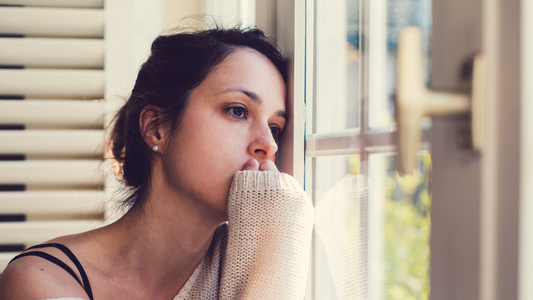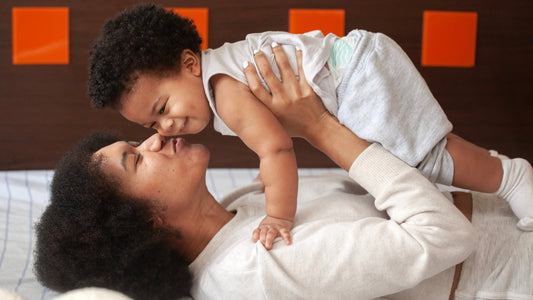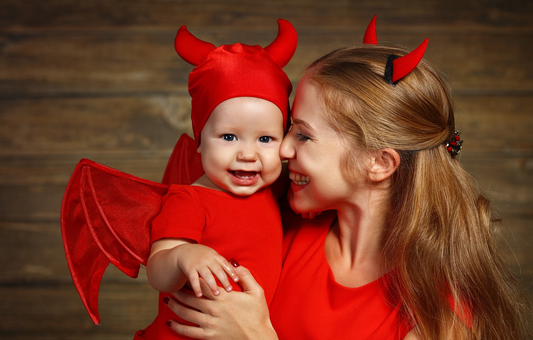Sunny days are perfect for making memories with your little one. But too much sun can be tough on your baby’s sensitive skin. Because their skin is thinner and more delicate, babies can burn quickly, even during short outdoor play.
At Milk by Mom, your baby’s comfort and health are always top of mind. That’s why we’re here to help you keep things sun-safe. In this guide, we’ll share simple ways to protect your little one from sunburn so you can enjoy sunny days with confidence.
Why Is Baby Sunburn Dangerous?
Sunburn is more than just a little redness on the skin; it’s a clear sign of damage caused by too much exposure to the sun’s ultraviolet (UV) rays. For babies whose skin is thinner, more delicate, and still developing, that damage can happen much faster and run deeper than it would for adults. Even brief moments in strong sunlight can lead to painful burns, irritability, dehydration, and a lot of discomfort for your baby.
What’s more concerning is that sunburns in early childhood can increase the risk of long-term skin problems, including a higher chance of developing skin cancer later in life. That’s why taking extra care during outdoor time matters so much.
Simple choices like staying in shaded areas, dressing your baby in sun-safe clothing, and using mineral sunscreen (for babies 6 months and up) can go a long way. You don’t need to be perfect, just prepared.
Signs of Sunburn in Babies
Sometimes, it’s not easy to spot a sunburn on your baby right away. Their skin might look just fine at first, but signs of sun damage can take a few hours to show up. Knowing what to watch for can help you catch it early and ease any discomfort your little one may feel.
- Red or pink skin – This is usually the most noticeable sign, but it may take time to appear after sun exposure.
- Warm or hot skin – The affected areas might feel warmer than the rest of their body.
- Irritability or fussiness – Your baby may seem uncomfortable, fussy, or harder to soothe than usual.
- Swelling or tiny blisters – These are signs of a more serious sunburn and should be checked by your pediatrician.
- Best Ways to Prevent Baby Sunburn
The safest way to protect your baby from sunburn is to limit direct sun exposure, especially between 10 a.m. and 4 p.m., when the sun’s rays are strongest. Babies under six months are especially vulnerable, so it’s best to keep them in the shade whenever possible.
Here are a few ways to help keep your little one safe:
- Stay in the shade – Use trees, umbrellas, or a canopy to block direct sunlight.
- Choose a stroller with a sun cover – An adjustable canopy adds extra protection during walks.
- Plan outdoor time wisely – Aim for early mornings or late afternoons when UV levels are lower.
- Use baby-safe sunscreen – For babies over six months, apply a broad-spectrum sunscreen to exposed areas.
Safe Sunscreen Use for Babies
For babies under six months, it’s best to avoid sunscreen altogether. Their skin is still developing and is more likely to absorb ingredients that may irritate. Instead, focus on keeping them in the shade and dressing them in protective clothing.
Once your baby is over six months, you can safely introduce sunscreen with a few simple precautions:
- Choose mineral-based sunscreen and look for options made with zinc oxide or titanium dioxide, as they sit on top of the skin and are less likely to irritate.
- Apply to exposed skin by gently covering areas like the nose, cheeks, ears, and the back of hands, avoiding the eyes and mouth.
- Use SPF 30 or higher, as they offer stronger protection for delicate skin.
- Reapply every 2 hours, especially after water play or sweating. Before using a new product, do a small patch test first.
Clothing and Accessories for Sun Protection
Dressing your baby in sun-protective clothing is one of the easiest and most reliable ways to keep their skin safe outdoors, especially in those first few months when sunscreen isn’t recommended. The right clothing creates a barrier between your baby’s delicate skin and the sun’s harmful rays.
- Long-sleeved rash guards – Lightweight and breathable, these offer great coverage for your baby’s arms and torso.
- UPF-rated clothing – Choose items labeled UPF 50+ for maximum UV protection.
- Wide-brimmed sun hats – A soft, comfortable hat helps shield your baby’s face, neck, and ears.
- Baby sunglasses – Go for 100% UV protection to keep your little one’s eyes safe.
What to Do if Your Baby Gets Sunburned
If your baby gets sunburned, it’s completely understandable to feel worried. But there are ways to ease their discomfort and help their skin heal. The most important thing is to act quickly and lovingly.
- Find shade right away – Move your baby out of the sun as soon as possible to stop further exposure.
- Soothe their skin – Gently press a soft, cool washcloth on the sunburned areas to reduce heat and ease the sting. Avoid using ice, as it may be too harsh for delicate skin.
- Offer extra fluids – Whether breast milk or formula, keeping your baby hydrated supports healing and helps prevent dehydration.
- Choose loose clothing – Dress your baby in soft, breathable fabrics that won’t rub against the skin or cause irritation.
Home Remedies for Baby Sunburn Relief
If your baby has a mild sunburn, there are safe, natural ways to bring comfort while their skin heals. Always check with your pediatrician first, especially if your baby has extra sensitive skin or is under six months old. Here are a few soothing remedies you can try at home:
- Aloe vera – Look for pure, fragrance-free aloe gel. It cools the skin and helps ease redness.
- Coconut oil – A light layer of virgin coconut oil can gently moisturize dry, irritated skin.
- Oatmeal baths – Add finely ground oats (in a clean sock or pouch) to lukewarm bathwater to calm inflammation.
- Chamomile tea compress – Let it cool, then gently dab it onto the skin using a soft cloth to reduce redness and discomfort.
When to See a Doctor for Baby Sunburn
Most mild sunburns can be cared for at home, but some signs mean it’s time to reach out to your baby’s doctor. Trust your instincts. If something doesn’t feel right, it’s always okay to ask for help.
Call your pediatrician if you notice:
- Blisters or swelling – These may be signs of a deeper burn that needs medical care.
- Fever – A temperature after sun exposure could signal a more serious reaction.
- Extreme fussiness or pain – If your baby seems especially uncomfortable and can’t settle, check in with your doctor.
- Signs of dehydration – Look for a dry mouth, fewer wet diapers, or unusual sleepiness.
Why Choose Milk by Mom?
- Trusted by thousands of parents across the U.S.
- Science-backed, lab-controlled process
- Fast, secure shipping kits included
- Easy-to-use reconstitution instructions
- No refrigeration needed — store up to 3 years
Final Thoughts
Your baby’s skin deserves extra care under the sun. And with a few mindful steps, you can enjoy sunny moments together without worry.
Whether it’s finding shade, dressing your baby in sun-safe clothing, or using baby-friendly sunscreen (for those over six months), each choice makes a difference. If sunburn happens, gentle care and early attention can ease discomfort and support healing. And when you’re unsure, your pediatrician is always your best resource.
You’re doing an amazing job. With love, preparation, and confidence, you and your little one can enjoy the sunshine safely and joyfully.


